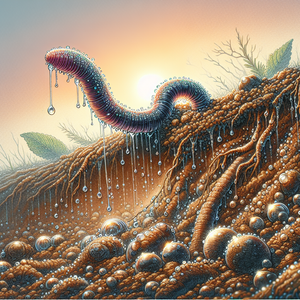The Rise of Bootlegging: How the Mafia Capitalized on Prohibition

Bootlegging was not merely about sneaking a few bottles of whiskey across state lines; it was a sophisticated and highly organized operation. Mafia groups, notably the Chicago Outfit led by figures like Al Capone, established extensive networks that included growers, distillers, and transportation routes. They relied on bribery, corruption, and violence to secure their operations. For instance, they often colluded with law enforcement officials who turned a blind eye in exchange for bribes, allowing bootleggers to operate with relative impunity. The mafia capitalized on the demand for alcohol by creating hidden distilleries, or 'moonshine' operations, in remote areas. These operations were often well-guarded and camouflaged, making them difficult to detect by authorities. The infamous 'rum runners' played a crucial role in this enterprise, using fast boats and trucks to smuggle alcohol from Canada and other locations into the United States. The sheer scale of these operations transformed the mafia from a relatively minor player in the world of organized crime into a dominant force. Al Capone, for instance, reported revenues in the millions, with bootlegging being a primary source of income.
Socio-Economic Impact
The impact of bootlegging during Prohibition was profound and multifaceted. On one hand, it provided a significant economic boost to organized crime, which flourished as illicit profits flooded in. Capone's success allowed him to expand his influence and control over Chicago, making him a household name associated with both wealth and violence. This influx of cash also enabled the mafia to invest in other criminal enterprises, such as gambling and extortion, leading to a diversification of their income streams. On the other hand, the rise of bootlegging contributed to widespread corruption and violence. The competition for control over the lucrative alcohol trade often led to violent turf wars between rival gangs. The infamous St. Valentine's Day Massacre of 1929, where seven members of a rival gang were murdered, epitomizes the brutal lengths to which these criminal organizations would go to maintain dominance. This violence not only destabilized cities but also instilled fear in the populace, challenging the very fabric of law and order. Moreover, the corruption extended beyond organized crime; it infiltrated various levels of government and law enforcement. The mafia's influence led to a significant erosion of trust in public institutions, as officials were often on the payroll of criminal enterprises. This corruption was a byproduct of the immense profits generated by bootlegging, which allowed criminals to wield power and influence that could challenge even the state.
Cultural Shifts and the Legacy of Prohibition
Beyond the economic ramifications, bootlegging significantly influenced American culture. The speakeasies—underground bars that flourished during this time—became epicenters of social life, blending jazz music, flapper culture, and a sense of rebellion against the establishment. These venues, often protected by mafia enforcers, offered a unique blend of excitement and danger, attracting patrons from all walks of life. The mafia's involvement in the nightlife scene helped to shape the cultural landscape of the 1920s, fostering a sense of camaraderie and defiance among those who frequented these establishments. The legacy of bootlegging and organized crime during Prohibition is still felt today. The era demonstrated how attempts to legislate morality can lead to unintended consequences, fostering a thriving black market and empowering criminal organizations. Moreover, the tactics developed during this time, such as smuggling and bribery, laid the groundwork for modern organized crime. The mafia's adaptability and resilience during this period serve as a blueprint for how organized crime can evolve in response to societal changes.
The rise of bootlegging during Prohibition serves as a cautionary tale about the complexities of regulating human behavior through legislation. While intended to promote a healthier society, the ban on alcohol instead catalyzed the growth of organized crime, corruption, and violence. The mafia's ability to adapt and capitalize on this new reality speaks volumes about their resilience and resourcefulness. As we reflect on this tumultuous period in American history, it is crucial to understand the interplay between law, society, and the criminal underworld—lessons that remain relevant in today’s discussions about crime, regulation, and morality. Ultimately, the Prohibition era highlights the challenges of enforcing moral legislation and the unintended consequences that can arise from such efforts, underscoring the need for a nuanced approach to policy and governance.
Criminal Justice Research Analyst
Government agencies, think tanks, and academic institutions
Core Responsibilities
Conduct in-depth research on organized crime trends and historical case studies, particularly focusing on the Prohibition era.
Analyze statistics and data to identify patterns in criminal behavior and the socio-economic impacts of organized crime.
Collaborate with law enforcement agencies to inform policy development based on research findings.
Required Skills
Strong analytical skills with experience in statistical analysis software (e.g., SPSS, R).
Excellent written and verbal communication skills for reporting findings to stakeholders.
Knowledge of criminal justice theories and organized crime dynamics.
Forensic Accountant
Law enforcement agencies, accounting firms, and financial institutions
Core Responsibilities
Investigate financial records to uncover hidden assets and fraudulent activities linked to organized crime operations.
Prepare detailed financial reports that can be used in legal proceedings against criminal enterprises.
Work closely with law enforcement to trace the flow of money from illicit activities such as bootlegging.
Required Skills
Expertise in accounting principles and forensic accounting techniques.
Proficiency in data analysis tools and financial software (e.g., QuickBooks, Excel).
Strong attention to detail and problem-solving skills.
Cultural Historian (Specializing in 20th Century America)
Universities, museums, and cultural institutions
Core Responsibilities
Research and document the cultural shifts in American society during the Prohibition era, focusing on the influence of organized crime.
Publish articles, books, or presentations that explore the intersection of crime, culture, and legislation.
Engage with the public through lectures, workshops, and exhibitions on the cultural significance of bootlegging and speakeasies.
Required Skills
Strong research and writing abilities, with a focus on historical analysis.
Familiarity with archival research methods and resources.
Ability to communicate complex ideas to a broad audience.
Law Enforcement Officer (Specialized in Organized Crime Units)
Local police departments, federal agencies (e.g., FBI, DEA)
Core Responsibilities
Investigate organized crime activities, including bootlegging operations, to enforce laws and maintain public safety.
Gather intelligence on criminal organizations and collaborate with federal agencies on joint operations.
Testify in court regarding findings from investigations related to organized crime cases.
Required Skills
Strong investigative skills and knowledge of criminal law and procedures.
Physical fitness and the ability to operate under high-pressure situations.
Excellent communication skills for working with various stakeholders, including the community and government entities.
Policy Analyst (Focus on Drug and Alcohol Legislation)
Government agencies, non-profit organizations, and research institutions
Core Responsibilities
Analyze the effects of historical and current drug and alcohol policies, including lessons learned from the Prohibition era.
Prepare policy briefs and recommendations aimed at improving legislation related to substance use and organized crime prevention.
Engage with stakeholders, including lawmakers and advocacy groups, to influence policy changes based on research findings.
Required Skills
Strong analytical skills with a background in public policy or law.
Excellent research and writing capabilities, with experience in drafting policy documents.
Ability to communicate complex legal and social issues effectively to a variety of audiences.


